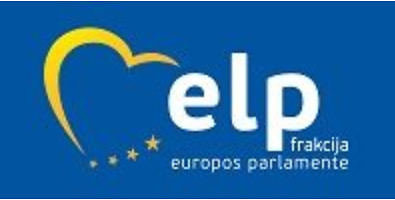Upon becoming the standing rapporteur for Russia-related matters, MEP Kubilius will form the European Parliament’s position and perception of what is occurring in Russia, as well as preparing reports, resolutions, and special hearings related to Russia.
Until now, the European Union’s Eastern Partnership Policy has been one of the most important topics that. Kubilius has been working on in the European Parliament. The MEP co-chairs the EURONEST Parliamentary Assembly, whose chief area of operations is changes in Eastern Partnership states, including Belarus. The Eastern Partnership states (Belarus, Ukraine, Moldova, Georgia, Armenia and Azerbaijan) are an important geopolitical aspect of the European continent, finding themselves between the European Union and Russia, and according to the MEP, the expansion of political responsibilities in the European Parliament to also include Russia is natural, albeit somewhat unexpected.
“My critical view of the Kremlin regime was formed long ago, and it is unchanging. I have made no effort to conceal it while at the European Parliament – just last year, the informal Friends of European Russia Forum I initiated began active operation. In it, together with the representatives of Russian opposition, as well as experts, we discussed when and how changes would begin in Russia akin to the ones currently underway in Belarus,” Kubilius says.
“Up to now, it appeared that ‘old Europe’ has a different perception of Russia than we, ‘new Europe’ do, and it came as a pleasant surprise when the leadership of the European People’s Party (EPP) proposed that I take this important and responsible office related to Russia affairs,”. Kubilius says.
“Russia, as we know, is a country, which will never leave you “bored”. Just recently we have had events from the poisoning of Alexei Navalny to the continuing protests in Khabarovsk, and it is my belief that the European Union must have a markedly clearer geopolitical strategy regarding Russia and in it, ‘Belarussian changes’ could begin just as suddenly and unexpectedly as they did in Belarus itself. This is the strategy we will pursue.”
On Tuesday at the proposal of Kubilius, the AFET’s meeting listened to information on possibilities to perform an objective international investigation on the poisoning of Russian opposition leader Navalny. It was agreed that a committee sitting in the near future would continue deliberations in regard to this.
















